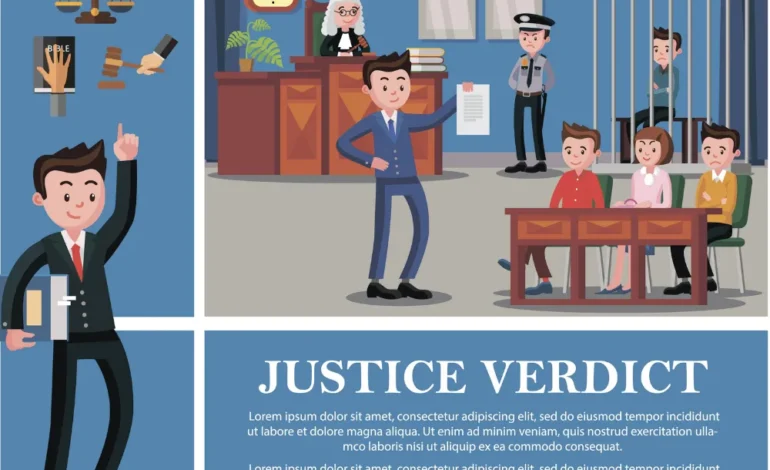Introduction
Have you ever briefly sympathized with the antagonist? That odd moral conundrum is at the heart of the gripping K-drama The Killing Vote. This is not your typical criminal thriller. Instead, it’s a bold exploration of what justice really means and how far people will go to achieve it.
In a world where criminals are decided by anonymous internet ballots, The Killing Vote takes a fresh and horrifying stance on justice and retribution. However, the plot’s ability to convey the annoyance of malfunctioning systems in the real world is just as captivating as the stress.
Let’s look at how TKV subverts everything by combining the law, morality, and retribution.
When Justice Is Insufficient in a Tense Society
Imagine a society where the justice system consistently exonerates criminals based on technicalities. Let’s say a vigilante who wishes to be anonymous allows the public to vote on whether to allow the criminal to live or die.
That is the main argument of The Killing Vote.
Every episode features a different criminal case, and they are all increasingly disturbing. The catch? If more than half of the population votes for the criminal’s execution, a disguised individual known only as Gaetal will carry out the execution. Despite the story’s seeming exaggeration, it skillfully conveys how the public views real events, where victims are often left without justice.
This concept resonates strongly in countries where the public feels incensed over lenient laws and penalties. According to a 2023 survey, over 65% of South Koreans believed that their legal system needed significant reform, which is exactly what the Killing Vote is trying to do.
The hazy boundary between good and evil
What is so amazing about TKV is its ability to blur the lines between good and evil. In the series, Gaetal is not shown as a definite hero or villain. Instead, he is a person who has clearly been wounded by the system and is taking extreme steps to get what he considers to be “true justice.”
This moral ambiguity keeps you thinking. Is it ever appropriate to take issues into your own hands? Would you vote to kill if you had the chance?
Anecdote: Jina, a friend of mine, was fiercely against the idea of vigilante justice. But halfway through TKV, she added, “I kind of get it now.” I know it’s horrible, but it’s hard not to cheer for him.
To keep us engaged and conflicted, the writers use this emotional pull, which they clearly grasp.
Retaliation: The Fire’s Origin
Retaliation is The Killing Vote’s emotional core. Every character is impacted by pain and betrayal, including the victims and the enforcers. Through flashbacks and indirect clues, Gaetal’s motivations are finally revealed, despite their initial ambiguity.
As the story progresses, we see how justice and retribution are often synonymous.
To help you better understand this dynamic, here is a simple, step-by-step breakdown of how the show builds its revenge arc:
Introduce the Crime: Each show opens with a horrifying crime that was unfairly assessed.
When the public is presented the criminal’s actions and given the chance to vote, voting begins.
Moral Dilemma: The protagonists debate the ethics of voting.
Expose the Past: Often linked to a lead, flashbacks expose the more profound pain that lies at the heart of the crime.
Execute or Spare: When the public option is put into action, there are repercussions.
This cadence keeps viewers emotionally invested while challenging their assumed ideas of justice and revenge.
The Ensemble That Brings Justice to Life
TKV’s tremendous power is a result of its excellent ensemble. The protagonist of the story is Park Hae-jin, who plays a good police officer torn between the rule of law and justice. He is accompanied by Park Sung-woong and Lim Ji-yeon, who add unforeseen elements and emotional depth.
Their performances act as the pivot of the plot, making even the most absurd sections seem real. Each performer offers a unique perspective on justice, ranging from a strong belief in the system to bitterness over past failures.
Learn more about the cast and characters here.
Technology: Equitable Practices in the Digital Age
One important element of the Killing Vote is its use of technology. The murderer uses AI voice changers, deepfake technologies, and anonymous messaging apps to evade detection. This adds a modern twist to the classic idea of vigilante justice and raises important questions about how social media shapes public opinion. You can also check about How Advice Pro can Helps to Improve your Daily Decisions?.
Is it feasible for technology to advance justice and democracy? Or does it simply result in chaos masquerading as democracy?
The drama provokes thought but offers no easy answers.
FAQs
Where can I watch The Killing Vote?
You can stream The Killing Vote on platforms like Amazon Prime Video or Viki, depending on your region. Availability may vary.
Who is Gaetal in The Killing Vote?
Gaetal is the mysterious masked character who delivers justice based on public votes. His identity and motives are revealed gradually throughout the series.
Is The Killing Vote based on a true story?
No, it’s a fictional drama. However, it draws inspiration from real-life frustrations with legal systems and societal views on justice and revenge.
What genre does The Killing Vote fall under?
It blends thriller, crime, psychological drama, and social commentary—making it perfect for fans of intense and thought-provoking stories.
Final Thought
The Killing Vote doesn’t just entertain—it provokes. It peels back the layers of a flawed justice system and asks viewers to confront uncomfortable truths: What would you do if justice failed you? Could you press the button? It’s a haunting exploration of morality in a digital age, where law and conscience collide. Through its tense storytelling and ethical grey zones, the series forces us to question whether real justice can exist in a world so fractured—and if not, who gets to decide what’s right?







